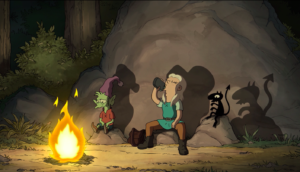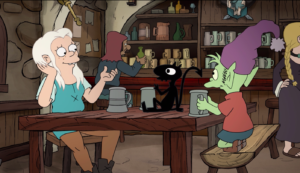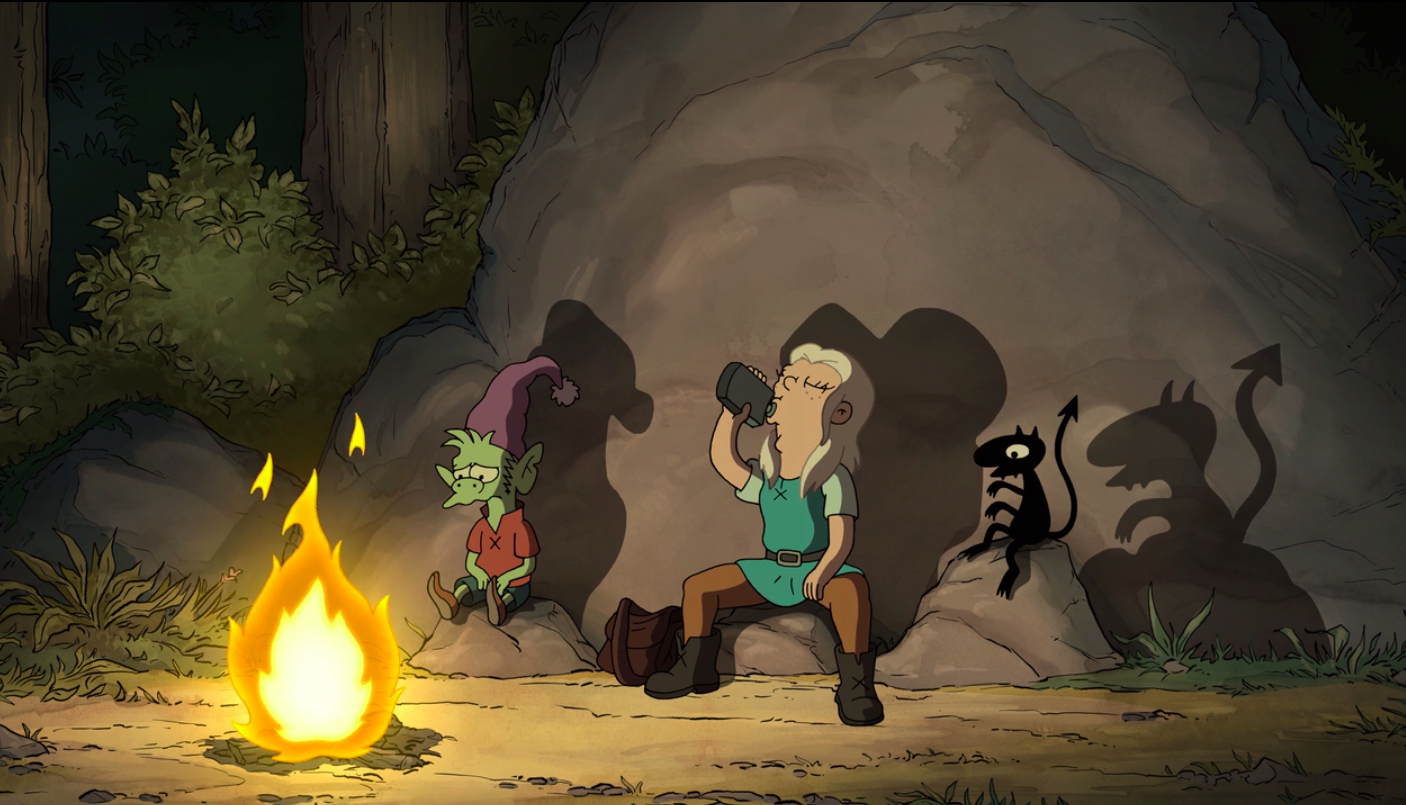From Homer Simpson to Philip Fry, Matt Groening has created some crazy, iconic worlds with some crazy, iconic characters.
But it doesn’t stop with Futurama and The Simpsons — Disenchantment, Groening’s new Netflix Original Series, takes the crazy to a whole new level in a show that barely even compares to his previous masterpieces.
Disenchantment follows the trials and tribulations of Bean, a troubled princess in a place called Dreamland. Her father sucks, her mother was turned to stone when she was a child, and she has no friends because everyone is scared of her sucky father. Then comes Elfo, a Keebler-elf type character who left Elfwood for a bigger and better life and then Luci, Bean’s own personal demon. That pair makes her feel a sense of camaraderie and togetherness that adds a mystical sense of wonderment to the show.

Groening uses this animated series as a way to mesh medieval charm with today’s humor, and it’s fantastic. In the first episode alone there are religious jabs and racist deer and enough character development to last a lifetime. Throughout the series, we’re also introduced to giants who are passionate about body positivity, a fairy prostitute, a vindictive reptilian queen, and an ambiguously gay exorcist/demon hunter. And that’s just the beginning.
But the most important thing about Disenchantment isn’t the nostalgic knights-and-ladies medieval setting of Dreamland, or the taboo humor, or the dark undertones. It’s that Groening wrote us the strong princess that we deserve, and not in the same way Disney does.
Bean is a vulgar alcoholic who struggles in her life of no friends, no lover, and no stable family (because let’s face it, King Zøg isn’t the most affectionate father). She literally plays the part of a runaway bride in the first episode, befriends a demon, and evolves into a strong and independent woman who, like a strong independent woman should, carries her flaws with her and slowly grows more and more accustomed to them (with the help of Luci and Elfo).
Bean spends a good chunk of the series growing stronger, from running away to throwing a banger in the castle and (kind of) handling it gracefully. In episode 5, King Zøg kicks Bean out of the castle because of the previously mentioned banger, so she gets the taboo job of beheading criminals.
But she can’t do it — she goes through an internal moral dilemma and, before beheading her first person, walks away, refusing to keep a job that means murdering people (even though she ends up killing Hansel and Gretel later in the episode, but that’s an accident anyway). The point is, Bean works up the courage to stand up for what she believes in, even though her dad, her closest family, is literally cheering her on from the sidelines because he’s proud that she’s finally doing something.
Bean is the feminist we need — she’s crazy and motivated and stronger than any of the women that Groening has created (followed very closely by Futurama’s Leela, but that’s an article for another day). She’s a badass princess who wears pants and gets drunk and has premarital sex and starts bar fights. Although this show takes place in the past, Bean is the princess most representative of the modern era and is an inspiration to young women.



very good article, I enjoyed it.